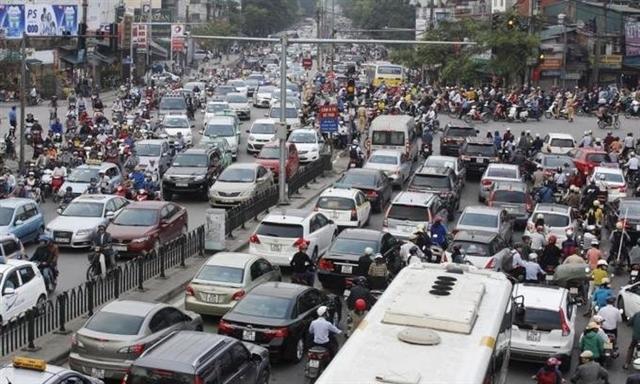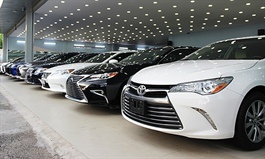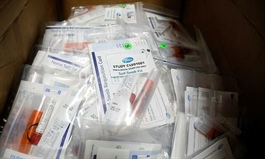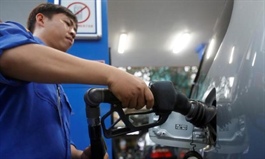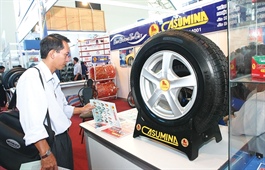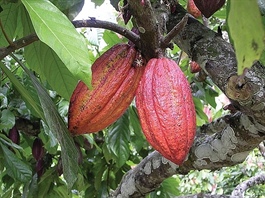Cut in registration fee revives auto market
Cut in registration fee revives auto market
The government’s cutting of first-time car registration fees by half appears to have lifted the auto industry out of a slump caused by the Covid-19 pandemic.
Vehicles are seen along a street in Hanoi. Photo by Reuters/Kham.
|
Toyota Vietnam revealed that in October it could not meet the demand of 4,000 Vios cars and could only deliver 3,443. This was more than 500 in excess of its target, something that greatly surprised sales planners.
According to car dealerships, the increase was due to customers scrambling to buy cars before the end of 2020 to enjoy the 50 percent reduction in registration fees.
In the higher end, the Mercedes GLC, which is three or four times more expensive than the Vios, was also selling out.
Early this year, when the pandemic began, the auto industry had projected a year of poor business. Sales fell by 31 percent year-on-year in the first half, according to the Vietnam Automobile Manufacturers Association (VAMA).
The industry feared full-year sales would be down 15-20 percent, and sought help from the government.
Prime Minister Nguyen Xuan Phuc signed a decree at the end of June stipulating a 50 percent reduction in registration fees for locally made cars until year-end.
The fees were previously 12 percent of the car price in Hanoi and 10 percent in Ho Chi Minh City.
This, along with companies’ promotions, enabled auto firms and dealers to clear out inventories.
The market took little time to respond, with sales soaring in both July and September. Sales for the first nine months were down only 21 percent year-on-year compared to the 31 percent drop in the first half.
Some companies now even expect sales to be on par with last year.
With the start of the year’s final quarter, and customers realizing there was not much time left, there was a 15 percent increase in sales in October.
Hyundai, Toyota, Mazda and other dealers are taking advantage of the situation to cut promotions, go back to list prices and even force customers to buy extras if they want early delivery.
Auto sales in October hit 33,254 units, up 14.9 percent year-on-year, indicating car consumption is recovering to pre-pandemic levels.


